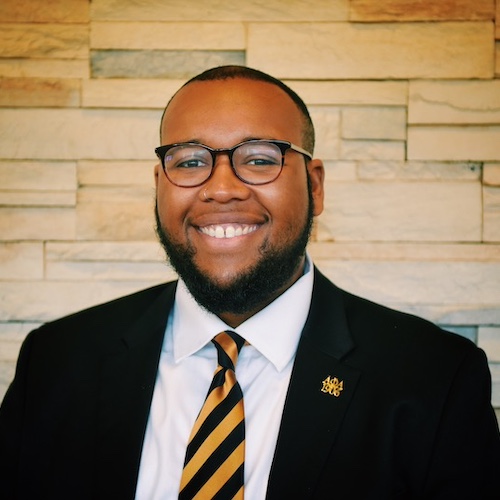
Jeff Perkins
Senior Manager of DEI
Jeff Perkins is an educator, writer and artist from Kansas City, Missouri. He received both his BA in English-Creative Writing and M.Ed in Educational Leadership and Policy Analysis from the University of Missouri-Columbia. He is passionate about supporting historically marginalized communities through higher education and the creative arts. His work focuses on diversity, equity and inclusion, college access, intersectionality, LGBTQ identities and more! A dynamic speaker, he has designed and facilitated many DEI related workshops and trainings. Jeff has presented at conferences and college campuses across the United States such as the Show Me Pride College Summit, NCORE, NASPA, Big XII Black Student Government Conference, the University of Texas-Tyler, the University of Louisville, and The Ohio State University. Jeff is a lover of all things creative arts—especially books and music! He’s an avid collector of vinyl records, loves being front row at concerts and practices his DJ skills in his free time. He loves spending time with his mom and friends, exploring new foods to try and traveling.